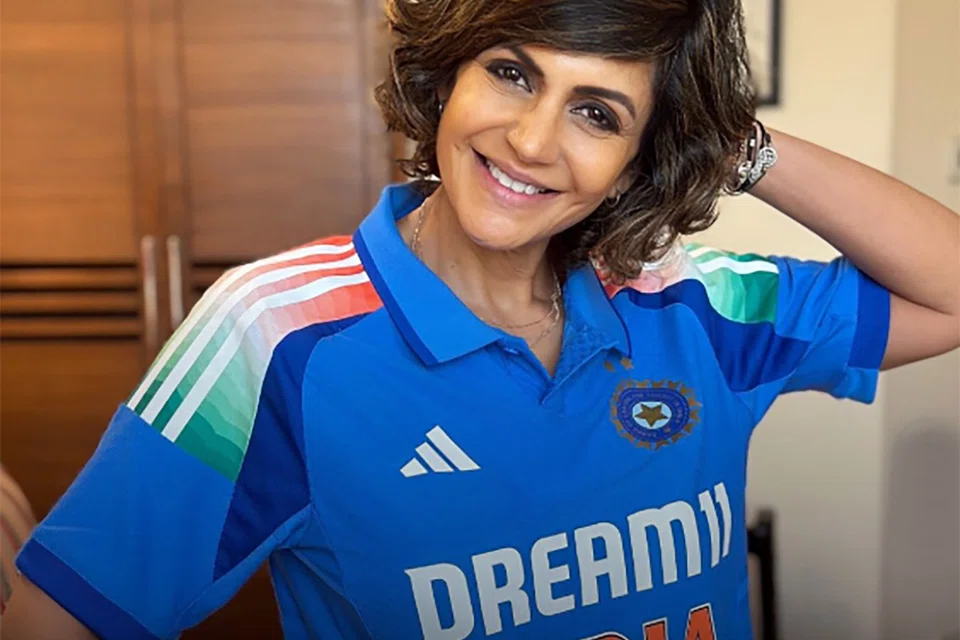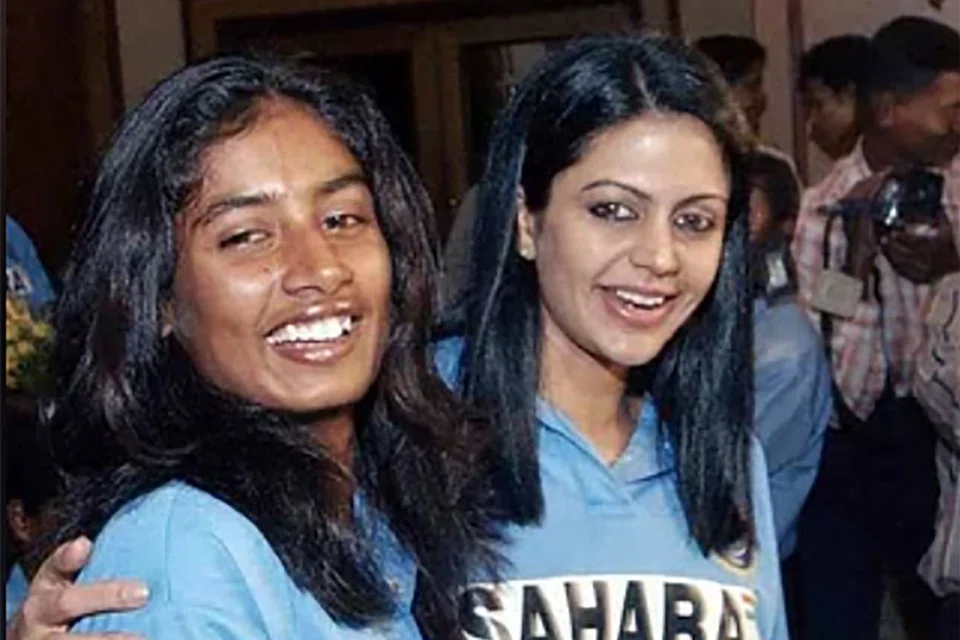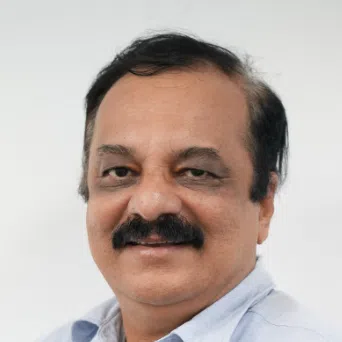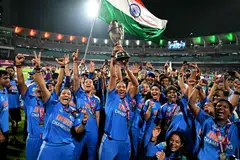From sacrificing her endorsement fee to anchoring a cricketing movement, Mandira Bedi’s support for Indian women’s cricket in the early 2000s was both visionary and vital.
On Dec 5, she will host the Magic Bus Gala in Singapore – continuing her lifelong mission to empower lives through sport and support.
In the early 2000s, the Indian women’s cricket team was fighting for more than wins on the pitch – it was fighting for survival.
With no sponsors, scarce institutional support, and next to no media coverage, the team often couldn’t afford basic expenses like international flights, training camps, or gear.
At a time when the men’s team enjoyed overwhelming corporate and public attention, their female counterparts were largely invisible.
Enter Mandira Bedi.
Known to the Indian public as a Bollywood actor and one of the first female cricket broadcasters, Mandira quietly stepped in during Indian women’s cricket’s darkest days — offering her personal earnings, public platform, and heartfelt advocacy to ensure the game didn’t fade away.

Between 2003 and 2005, her behind-the-scenes interventions proved to be crucial in helping the team stay afloat.
“I wanted to do whatever I could,” Mandira told tabla!. “In a country where cricket is so loved, it was shocking how completely neglected the women’s team was.”
In 2004, while serving as the brand ambassador for Asmi Jewellery, Mandira convinced the brand to sponsor the Indian women’s One-Day International series against the West Indies, reported NDTV.
But that wasn’t all. To make it happen, she voluntarily gave up her entire endorsement fee, asking the company to redirect the funds to the Women’s Cricket Association of India (WCAI).
That money paid for air travel and training for the team’s subsequent tour of England.
“They didn’t even have money for plane tickets,” she recalled. “So I said, forget my fee – just fund the team. That was the beginning.”
Former WCAI secretary Nutan Gavaskar confirmed this in an interview with the Times of India, noting that Mandira’s contribution literally helped the team get on a plane.
While her donations provided much-needed immediate support, Mandira’s long-term impact came from her ability to spark visibility and conversation around the sport.
A trailblazer in Indian cricket broadcasting, she became one of the first prominent female presenters on shows like Extraa Innings during the 2003 Men’s World Cup.
Despite pushback for her unconventional presence in a male-dominated space, Mandira used her fame to draw attention to the women’s game.
“She had already done so much for men’s cricket on television,” former cricketer and WCAI official Shubhangi Kulkarni told the Hindustan Times. “When we asked her to help us, she didn’t hesitate.”
Mandira not only agreed but actively lobbied sponsors on behalf of the WCAI. Her efforts sparked interest from brands that had previously ignored women’s cricket.
“Once Mandira came on board, corporates began to take notice,” Shubhangi said.
Mandira’s connection to women’s cricket came from her role as a broadcaster. While at a match at Mumbai’s Cricket Club of India, she spontaneously walked up to WCAI officials – including Shubhangi and Arvind Prabhu — and asked how she could help.
“I literally introduced myself and said, ‘What can I do?’” Mandira told tabla!. “It was being in the right place at the right time.”
She didn’t play the sport herself – growing up, girls like her weren’t encouraged to. Her early cricket experience was limited to bowling to her brother or playing in her apartment complex. But her passion ran deep.
“I always believed cricket should cut across gender lines. Back then, nobody even knew a women’s team existed. I just wanted to change that,” she said.
In those pre-BCCI (Board of Control for Cricket in India) days, the WCAI ran the women’s team with minimal resources. But Mandira also foresaw the need for institutional integration.
She recalled approaching then-BCCI president Jagmohan Dalmiya to discuss a potential merger between the WCAI and BCCI. The eventual 2006 merger happened in line with global shifts driven by the International Cricket Council, but Mandira’s early advocacy helped pave the way.
In 2025, as India lifted its first-ever Women’s Cricket World Cup on Nov 2, Mandira’s contribution — though not publicly known to most fans – echoed in the win. On Instagram, she posted a handwritten note: “You didn’t play for a nation, you moved it.”
Mandira’s commitment to women’s cricket remains unwavering. “They’ve become household names now,” she said. “They’ve earned every bit of this moment.”
She also hosted the Women’s Premier League’s opening ceremony at the DY Patil Sports Academy in Navi Mumbai on March 4, 2023, and called it “a turning point”.
“It was a packed stadium. That moment felt historic,” she said.
But her philanthropic work stretches beyond cricket. For the past decade, Mandira has been a key supporter and host of the Magic Bus Gala, a fundraiser that supports Magic Bus India Foundation’s mission to lift children out of poverty through education, mentorship, and sport-based life skills.
The Magic Bus Gala features influential guests, entertainment, auctions, and inspiring stories of the charity’s impact. Funds raised go towards providing education, life skills, and employability training to young people in India and other parts of South Asia.
On Dec 5, Mandira will return to Singapore to host the Magic Bus Gala, joined by long-time supporter Abhishek Bachchan. The evening promises a star-studded guest list, silent auctions, and impactful storytelling.
“I’ve been hosting it for 10 years now,” Mandira said. “I love hearing the stories of kids who’ve gone from living in poverty to becoming role models.”
She’s not just a host – she’s a believer in the mission. “My mother always taught me to give back. I don’t count it as charity – I count it as something you must do.”
santosh@sph.com.sg



